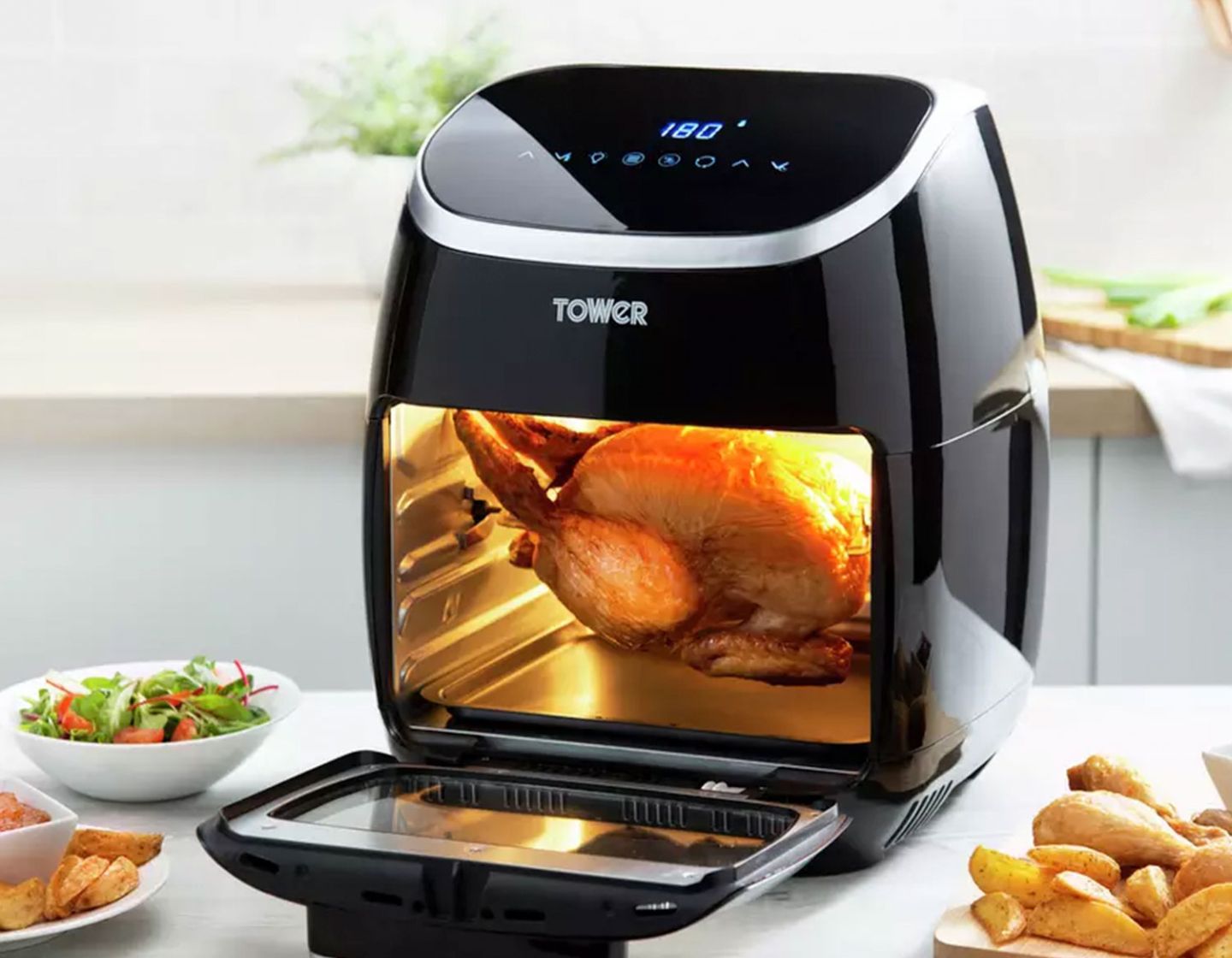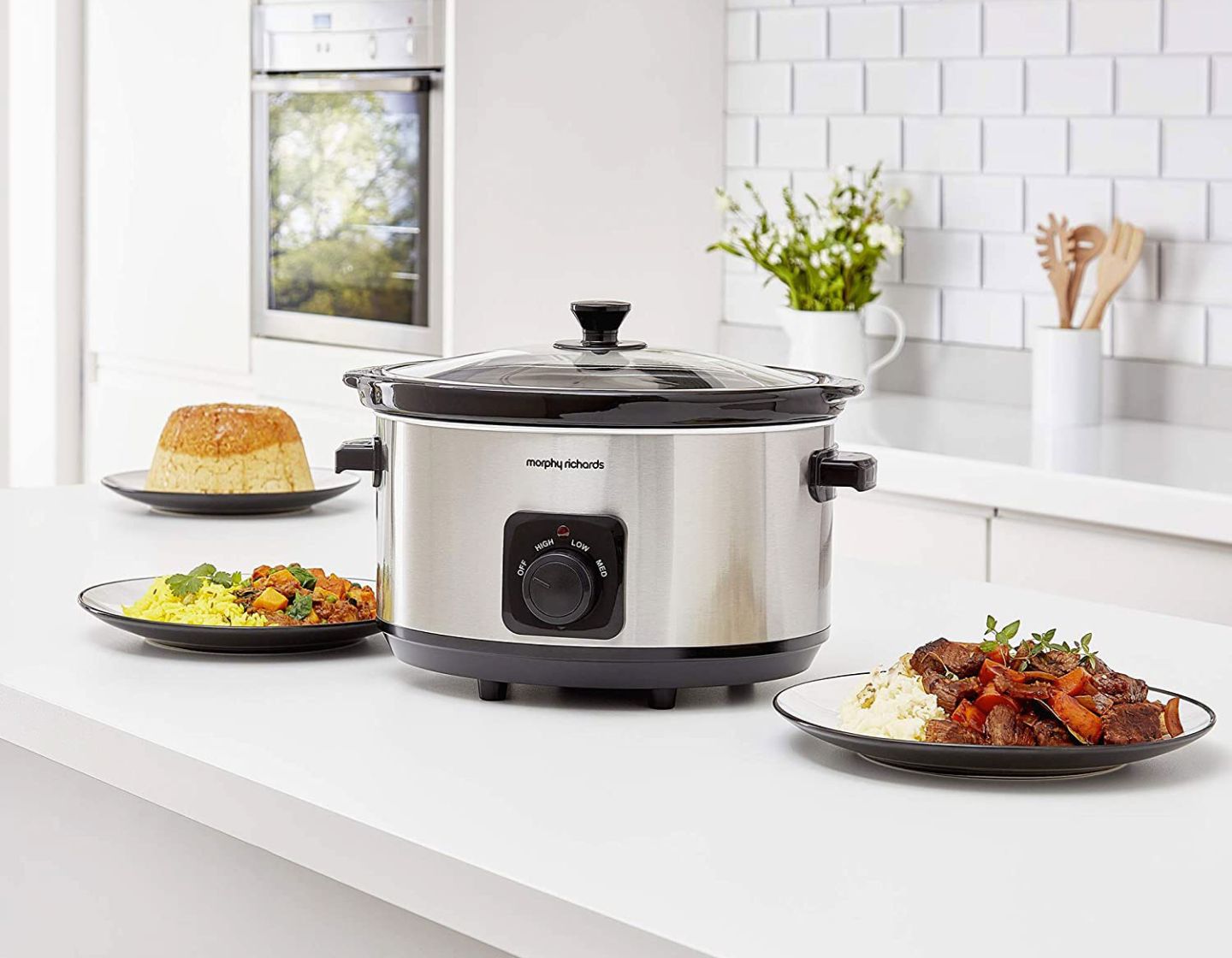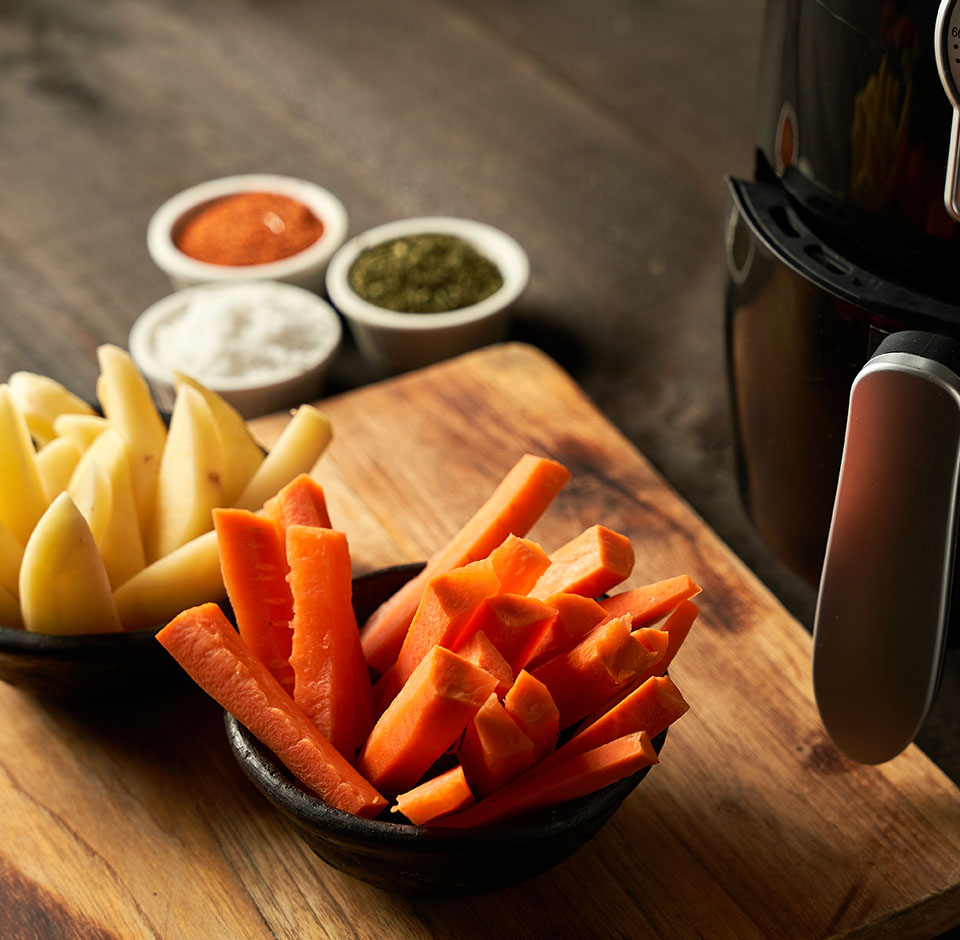How Energy Efficient are Air Fryers, Slow Cookers and Electric Steamers?
With energy bills constantly lurking at the back of our minds these days, it’s no wonder many of us want to make dinner more efficient. 42% do most of our cooking in an oven – and they can take 15 minutes just to get to temperature. For those looking to save, that’s a concern.
Right now, people are taking a renewed interest in certain kitchen gadgets – air fryers, slow cookers and electric steamers – due to their potential to cook using much less energy. But with a lot of misconceptions floating around, we wanted to find out: exactly how economical are air fryers, slow cookers or electric steamers?
Let’s dive into how each of these appliances works, and how they could help you save. Plus, we’ll explain how they could improve your dinners, too.
How does an airfryer work?
Before we get into the efficiency of air fryers, we should answer the question – what is an air fryer? Air fryers are so named due to their ability to simulate deep frying, without the use of oil. But put simply, an air fryer is just a small oven with a powerful fan.
But let’s not undersell this appliance. The concentrated heat, small chamber and intense air circulation mean they heat up fast, and food gets cooked very quickly and evenly (as with deep frying). Most models keep the food in a perforated basket, so that hot air can circulate all around it.
Compared to using a normal oven, an air fryer will make your food crispier and more evenly cooked, in a fraction of the time. You also don’t need to use much oil to get your food nicely browned. Fatty foods like bacon or chicken wings can cook just in their own fat.

Are air fryers energy efficient?
So – are air fryers economical? It’s a resounding yes. Not only do air fryers cook food faster, but they also use less energy per hour to run than conventional ovens. Whilst a typical 2200-watt electric oven costs about 85p per hour, a typical 1500-watt air fryer will cost about 51p.
And with an air fryer taking half the time it takes for an oven to heat up and cook – often less – you can start to see how the savings quickly add up. In fact, if you use it to replace your oven, your air fryer could pay for itself in about half a year.
However, because the most efficient air fryers have a small chamber, they work best for small households. If you have a large family or regularly cook big batches of food, you’ll need to do multiple rounds of cooking in your air fryer. That could be a hassle – and may negate your energy savings too.
Why use a slow cooker?
Slow cookers are another cooking gadget that could save you a lot of energy – and unlike air fryers, are perfect for cooking big portions of food. But how do slow cookers work? Slow cookers require a little organisation, but are exceedingly easy to use. Dump your ingredients into the pot, switch it on and enjoy a delicious slow-cooked meal between 4 and 8 hours later.
Cooking food slowly brings out the flavours in ingredients, and tenderises tough, inexpensive cuts of meat. For example, a slow cooker can turn a cheap pork shoulder into fall-apart pulled pork in 8 hours. They’re ideal for batch cooking, and allow for low-effort, hands-off meals.
Many busy working people enjoy the fact that you can put on your slow cooker in the morning, and come home to a hot meal in the evening. But how energy efficient are slow cookers if they need to be running for hours and hours?

Are slow cookers energy efficient?
Slow cookers may require a long time to cook, but they use very little energy – typically between 50 and 300 watts. That’s about as much as a typical lightbulb. As we mentioned earlier, the average electric oven uses around 2200 watts.
But how economical are slow cookers, when you’re cooking for 8 hours at a time? If your slow cooker wattage is 100 watts on the low setting, it will cost just 27p to run for an 8-hour cook – whereas an oven will cost 85p to run for just one hour. And with large slow cookers available with capacities of up to 6.5 litres, it’s an incredibly efficient way to cook lots of food at once.
Are electric steamers energy efficient?
Although they may not have gotten quite as much hype as air fryers or slow cookers, steamers are highly energy-efficient cooking appliances. Steaming is also an incredibly healthy way to cook because you don’t need oil, and it preserves the texture of delicate ingredients such as fish.
Food steamers work by heating a chamber of water below your food, which is held in a basket, so that the steam rises up to cook it. Steamers typically only require between 400 and 800 watts to run – and most foods only need to be steamed for 20 minutes or less. That means a 600-watt electric steamer could cost just 7p to cook a meal. Now that’s a tasty saving!
Looking for the best energy-efficient appliances to save you money? Take a look at our small appliance collection here.


